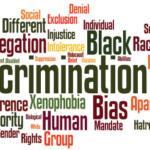Although she now realizes that approach can be an unhealthy way to look at pain, she catches herself in this same thought pattern. Now that she is aware of that pattern, she can focus on finding out what’s wrong when someone says they are in pain.
“The interruption of implicit bias is understanding those thoughts and saying, ‘I can choose behavior that is different than my initial thought,’” she says.
When physicians are not able to step back and critically examine conclusions they’ve made, it can lead to very different care decisions. Dr. Reeves explains that this is when disparities occur. She also acknowledges that a reliance on unconscious associations is easy to do in today’s busy clinical practice.
Tapping into Experience
Dr. Reeves notes that using previous experience to reach a conclusion faster than someone seeing it for the first time is still a legitimate skill in the workplace. “You have to get better at asking, ‘Is that an instinct, or could I have overlooked something because I got to the conclusion too soon?’” she says. “You want [a physician] who has experience and who can thin-slice their way to a faster decision, but who [also] has just enough awareness to question themselves and double check their conclusion.”
Even while using previous experience to make care conclusions or recommendations, physicians can take a little bit of extra time to question their initial assumptions, Dr. Hausmann says.
Don’t get nervous about the time involved with this questioning because you can quickly habituate. “When you do it constantly, it doesn’t take a lot of time,” Dr. Reeves explains.
One practice: Dr. Reeves does not discount aberrations, which may provide insightful information. One technique she advises is to reach a conclusion, return to the aberrations and ask, “If the aberration was actually a symptom and I put it back in here, would that change [my conclusions]?”
Inclusion in Clinical Trials
When asked about implicit bias in research, Dr. Reeves pointed to historical evidence of medical research associated with experiments on people of color that may lead them to be more skeptical of research participation.
A way to help overcome this reluctance is to put people on the research team who can communicate with these under-represented communities and be someone who they can trust.
“That doesn’t always have to be the lead researcher or physician,” Dr. Reeves says. Interns, social workers, psychologists and other care workers can assist with making these connections.



